Life in the middle of a pandemic isn’t easy, even more so when you’re in a new environment, abroad and alone. For Ateneans on Junior Term Abroad (JTA), the coronavirus outbreak has placed them in a unique and delicate situation. Plans of gaining new experiences and learning about a new culture were replaced by adapting to lockdowns while constantly worrying about their family’s safety—all on top of shifting to online classes.
Despite being given the option to return from their host countries, these four Ateneans are among those who chose to remain and continue their studies overseas. Consequently, through their experiences in this time of crisis, they are able to gain perspective on the virus’ worldwide effects and their host countries’ response to the pandemic.
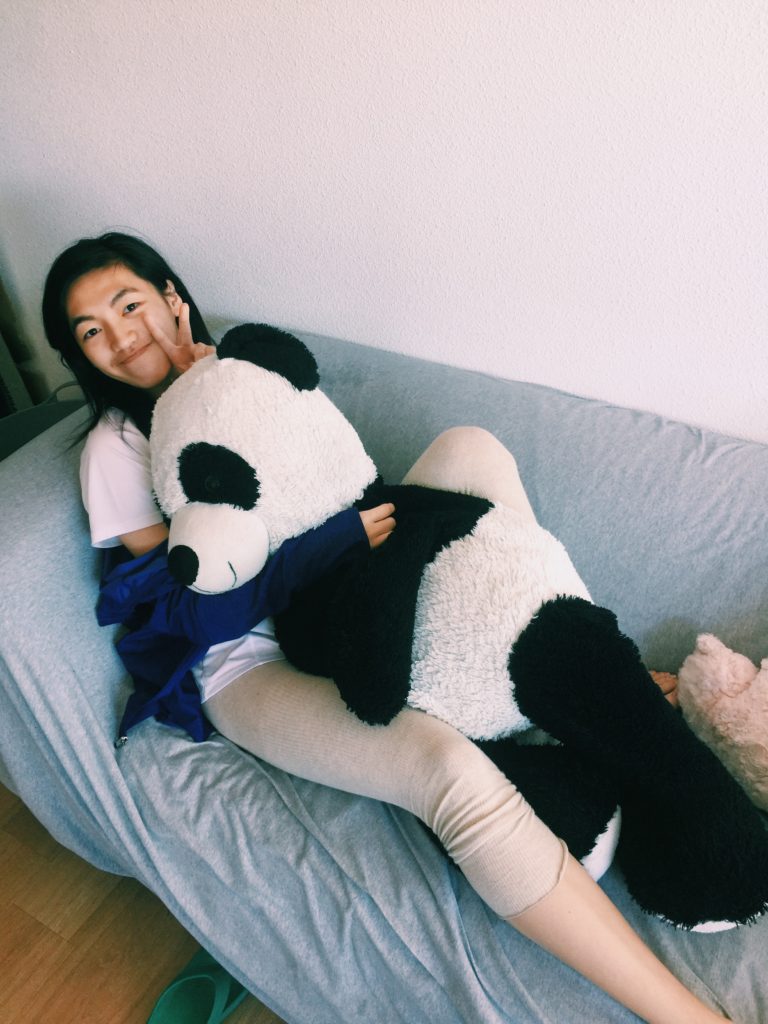
Aly Tan (Arnhem, Netherlands)
Aly Tan (3 AB COM), who considers herself someone who grew up in an overprotective family, came into the program feeling both nervous and excited. She thought that JTA would be her first foray into independent living while also being able to immerse herself in a new culture and environment.
However, due to the pandemic, her opportunity to learn and explore abroad were put at risk. But even then, Tan decided to stay in Arnhem, where she felt safer. “As much as I missed my family, the facts weren’t striking me well. The Philippines seemed to be a mess […] in comparison to my city, Arnhem, that at the time only had five on its positive count. I didn’t know how coming back would help me feel more assured for my own health and safety.”
The Netherlands was initially lax about the virus, but it has since implemented a “targeted lockdown” in response to the increase of COVID-19 cases worldwide. Several establishments have been closed, but people are still allowed to go out under social distancing guidelines, with a hefty 400 euro fine for violators.
To adapt to the situation, Tan says that her host university has incorporated a virtual educational system under an adjusted curriculum. Administrators also frequently check up on students and assure them of the university’s help in case of any emergencies.
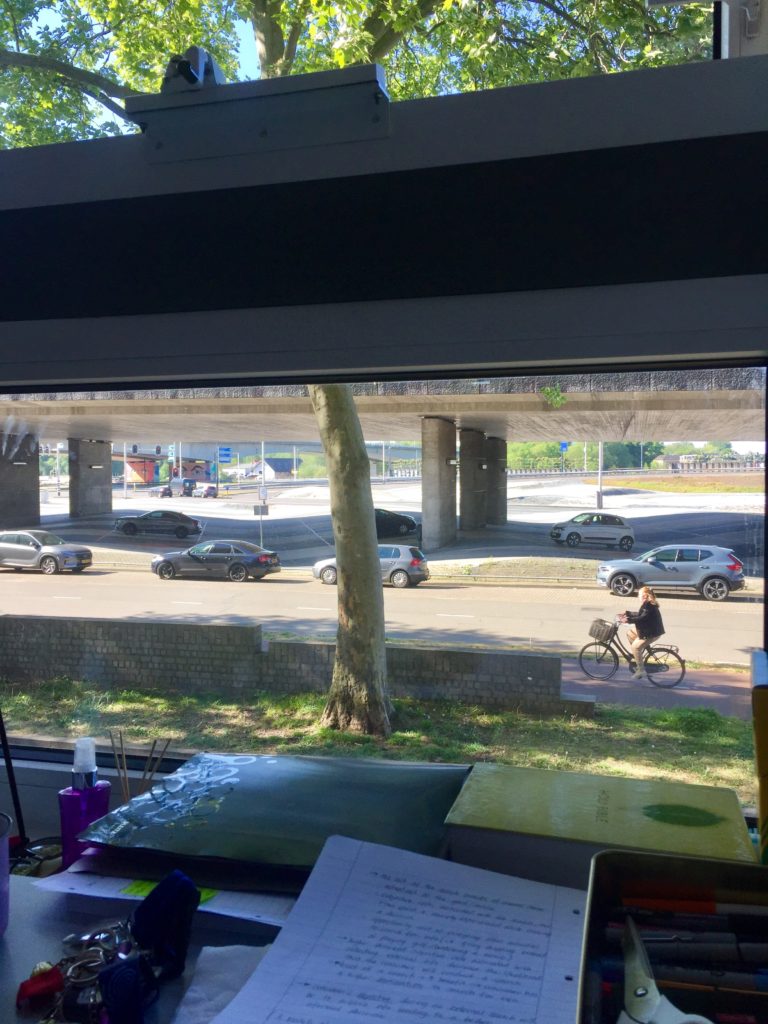
The biggest hurdle Tan faces, however, is the anxiety she gets when she thinks of her loved ones at home. “I always try to contact people to see how they’re doing back in my home country. [I check up on those] here in the Netherlands [too] because you’ll always have to be cautious about where they’ve gone and how they’re feeling health-wise. It’s hard being this conscious all the time, when we’re all supposed to be focusing on the more valuable aspects of life,” she says.
Her experience has also allowed her to gain a new perspective. “It’s become clearer to me that the world is one [...] and it’s only if we come together and value that truth can we truly rise above this world crisis,” Tan shares. “My hope for [the Philippines] is for [people] to love each other enough—for the government to care and provide without greed, for the people to give each other a chance and believe that things can be better, and for the country to stand and truly become one as a nation.”

Giane Butalid (Seoul, South Korea)
In the middle of February, South Korea had recorded the most number of cases next to China. This was mere days before Giane Butalid’s (3 AB EC-H) flight for JTA. Weeks later, when the spread of the virus had evolved into a pandemic, she still chose to stay. “I believed that South Korea would handle the situation as best as they could,” she explains. “I also understood there would be risks if I came home—I could unknowingly contract it traveling or be a carrier of the virus without showing symptoms.”
Fortunately, South Korea achieved just that: It has not only flattened the curve, but also become one of the countries with the lowest COVID-19 mortality rates in the world. Even more surprising is its ability to achieve this without strict lockdown implementations. “Schools, universities, and a lot of the non-essential shops have closed, and tourist spots aren’t that crowded, but besides that, it’s business as usual,” Butalid says. “South Korea recently held their elections too, and I’m really impressed by how they’ve been handling everything so far.”
This success can be attributed to the country’s competent government as well as its responsive community. Testing kits are widely available and technology is utilized to track individuals who have been in contact with infected people. The government also sends out mobile alerts about confirmed cases in the country and distributes free masks to institutions such as schools and hospitals. On the other hand, South Koreans do their part by practicing social distancing, following proper hygiene practices, and creating flexible work from home arrangements for employees. “Quarantine processes are taken very seriously here,” Butalid notes. “Students who have recently come in are required to undergo the 14-day quarantine and update both the Korea Centers for Disease Control and Prevention and the university of their condition.”
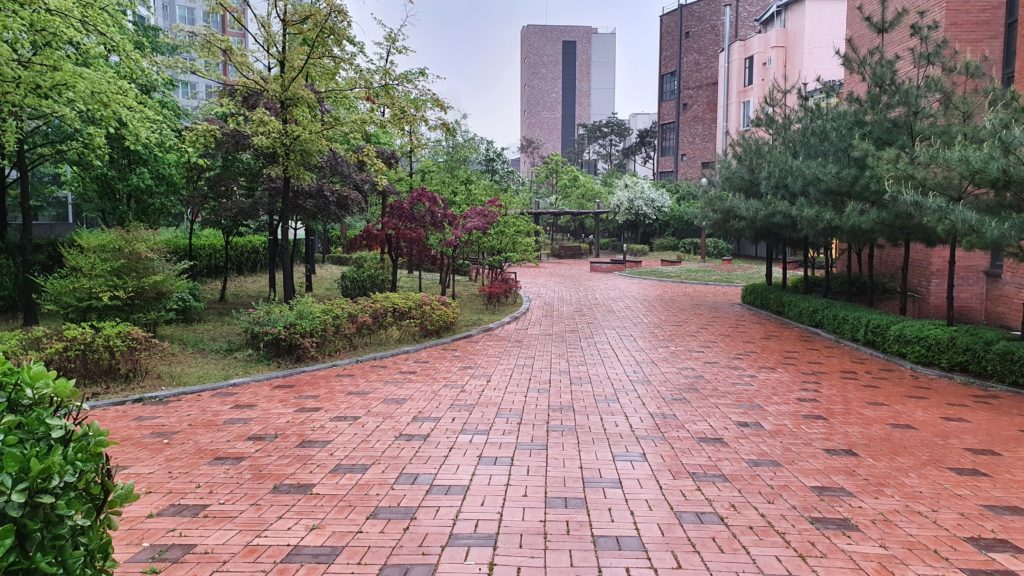
Butalid’s school, Sogang University, has transitioned completely to online classes for the rest of the semester. However, this shift means JTA will be very different from what she had originally expected. “It’s heartbreaking that I won’t be able to experience going around the beautiful campus during spring,” she says. “Despite that, I’m glad my professors are giving us online lectures and materials so we can still learn well.”
Even if Butalid is far away from the Philippines, her thoughts remain with her family and her country. “I know for [the Philippines], it can be hard to find solutions seeing that this health crisis is also an economic crisis, an education crisis, and a poverty [crisis],” she says. Butalid also believes that dialogue among people is necessary in these times. “I think that’s what it truly means to love your country—you make the tough choices, claim critical stances, and open up difficult conversations because you want home to be better.”
For now, Butalid is trying to take it a day at a time. She keeps in touch with her family, asks for photos of her dog, and video calls her friends back home. Here in the Philippines, we may be getting tired of our usual routines, but Butalid appreciates these small yet important tasks. For her, even just cooking meals, cleaning up, and doing chores are a little respite from everything—a gentle reminder that presently, it’s the best we can do, but it’s okay; it’s enough.
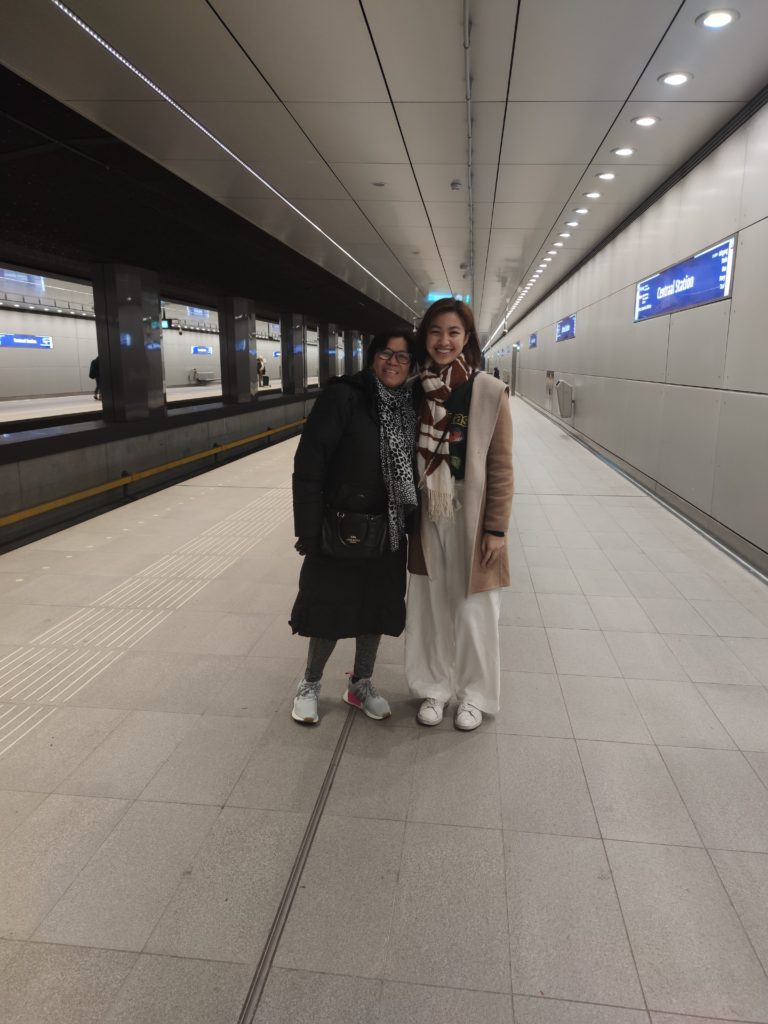
Louise Dimalanta (Venice, Italy)
As someone who had been planning to go on JTA since freshman year, Louise Dimalanta (3 AB HI) excitedly anticipated her semester in Italy, as it was going to be her first time alone in an unfamiliar place. “I was looking forward to travelling around and learning how to figure things out for myself,” she recalls. However, things took a different turn once the COVID-19 crisis reached the country and the number of cases began to skyrocket quickly, soon forcing Italy into lockdown. Dimalanta, who was travelling out of Italy at the time, ended up being stranded in Amsterdam, since flights back were already getting cancelled. She has been in Amsterdam since the end of March.
“I figured that the situation was better here, especially in terms of having to do my online classes,” she says. “I am staying with relatives, so my parents don't really have anything to worry about as compared to staying by myself in Italy.”
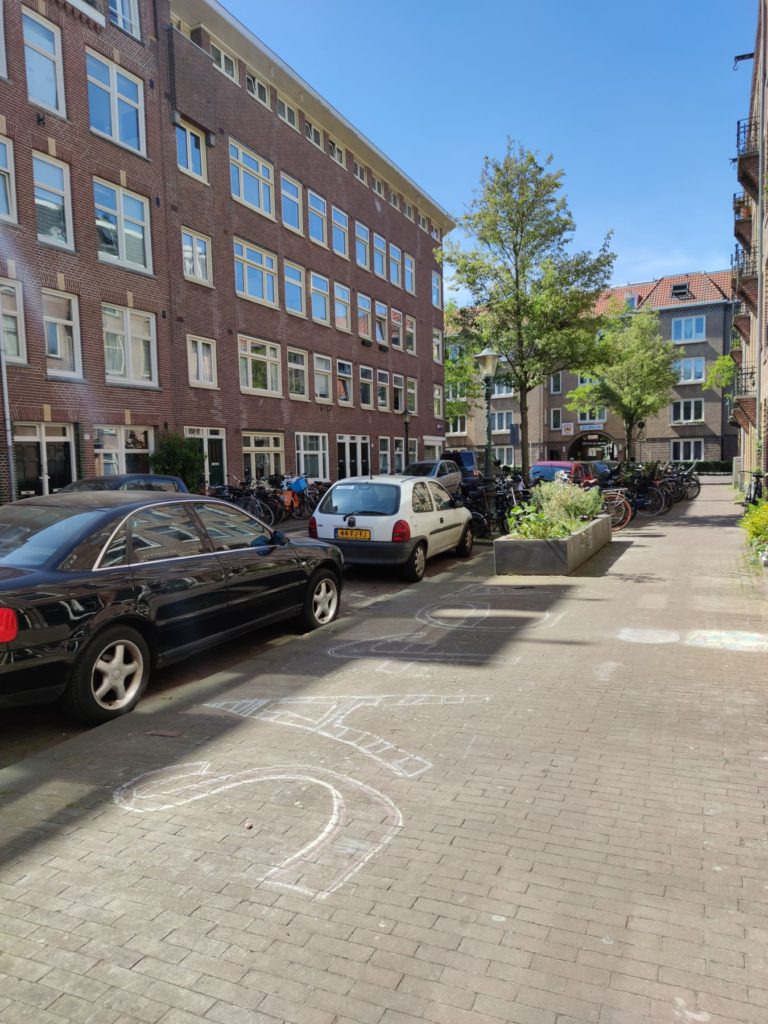
Dimalanta believes that Italy has been doing its best to contain the virus, especially as one of the first Western countries that started exhibiting a high number of cases. However, she also feels that the country’s initiatives could have been improved. “I think that their response could have been better in terms of providing support for its citizens, as many Italians are now facing financial problems as stores and non-essential businesses continue to be closed,” Dimalanta explains. As for her host university, the Ca' Foscari University of Venice, online classes are still being held, but students are encouraged to reach out to the university should they have any concerns. “They try their best to ensure our welfare by sending us recommendations or suggestions on how to spend our weekends.” Dimalanta adds. “Moreover, they have been encouraging us by sharing Instagram stories of students doing their online classes.”
Dimalanta’s experience also allowed her to gain insights on the importance of responsible leadership and citizenship. “It is impossible to attain an easy solution to the matter without [good governance and shared responsibility between citizens]. However, more responsibility should lie on the part of the government as they have the power and resources to create change and developments.” she shares. “Implementing good laws and systems will then call for more cooperation among the public. Thus, I hope that the Philippine government will step up and act for its people because the people’s welfare relies on them.”
Despite the many insights she has gained from her experience, Dimalanta candidly admits her disappointment with how her semester turned out. “I expected to travel around and meet new friends—now I can't do both because of the virus as everything is shut down and a lot of the people I have met already went home to their home countries,” she says. However, she still feels very thankful for the gift of company during such turbulent times. “I was lucky enough to have relatives who took me in, so I'm not in a very independent position right now. Whenever I feel bad about the whole direction this semester went [in], I talk to my family and friends. I guess the difficulty lies in having to accept that my exchange semester—the one I have dreamed of for years and prepared for since freshman year—will never be the exchange semester I expected.”

Mico Cruz (Montpellier, France)
Mico Cruz (3 BS CTM) faced many surprises during his first few days in the city of Montpellier. What he expected to be a small university town was actually a diverse hub with a predominant Asian community, where he met fellow Filipino college students also on their semester abroad. Still, Cruz had to deal with an unexpectedly strong language barrier not only in daily conversations, but in everything from street signages to menus to pamphlets in French. However, when the COVID-19 pandemic finally reached Europe, Cruz found himself dealing with an altogether different challenge.
“When President Macron, the President of France, had announced that all schools would close indefinitely, I was confused and scared as to what would happen to my exchange [term] and if everything would suddenly all come to an end,” says Cruz. “Despite that, I chose to still stay even if everyone else chose to go home, as I thought that there were so many things that I still haven’t seen in France, and even in my own city. I didn’t want to go home with the feeling of regret that I was not able to fully make the most of my JTA semester. Though I doubt I will be able to travel and push through with my plans by the time this lockdown ends, I still remain optimistic about what things are still in store for me.”
Cruz shares that his host university, University of Montpellier, has been generally lenient with the situation. “So far, I am having just one online class and the rest are just online submissions of pending requirements,” he says. As for how France has been handling the crisis, he admits that things were a bit rough at first. “Even before the situation worsened, the French people did not take the virus seriously, as I remember my Asian friends would often face discrimination by the locals whenever they would go out and wear face masks for protection.” However, Cruz says that there has been some improvement since the implementation of the lockdown, such as a decrease in the daily reported deaths.
Apart from monitoring his host country’s situation, Cruz has also been keeping himself updated with that of the Philippines. Observing both sides has led him to form some comparison between the two in terms of leadership. “With [President] Macron, there is less confusion as he is very transparent with what will happen in the coming days and his plans for France once the lockdown is lifted by May 11. Whereas, with Duterte, I can’t help but feel scared for my friends and family in Manila who are all confused as to what’s going to happen next due to Duterte’s lack of transparency and incompetence,” shares Cruz. “I really hope that the Philippine government will be able to catch up to what foreign countries have been doing to address the pandemic.”
Despite his general dismay about his numerous JTA plans being put on hold, Cruz is still striving to remain optimistic. “As shallow as it seems, I’m still heartbroken that I wasn’t and most probably won’t be able to do the things on my JTA bucket list, but now, my mindset is to just make the most of what’s left by the time the lockdown is over so that I would be able to look back with no regrets.”
Though living alone has had its fair share of difficulties, he has learned to manage and cope in the best way he can. “The loneliness actually made me think a lot about life and made me reflect on the things I want to do. I even planned out what I am going to do after graduation which is a thought that I’ve been brushing off for quite some time now. A few of my friends are still in my host city, so I can always turn to them if I need someone to confide in.”
Although the current reality of exchange students is a far cry from their initial expectations, these four Ateneans have definitely learned more about their host countries through their responses to the worldwide crisis. At the same time, living away doesn’t mean that they stand totally apart from life back home–the distance from loved ones and the nation results in its own anxieties. For the whole world, the road ahead is just as uncertain, but should be walked in solidarity.
Photos courtesy of interviewees